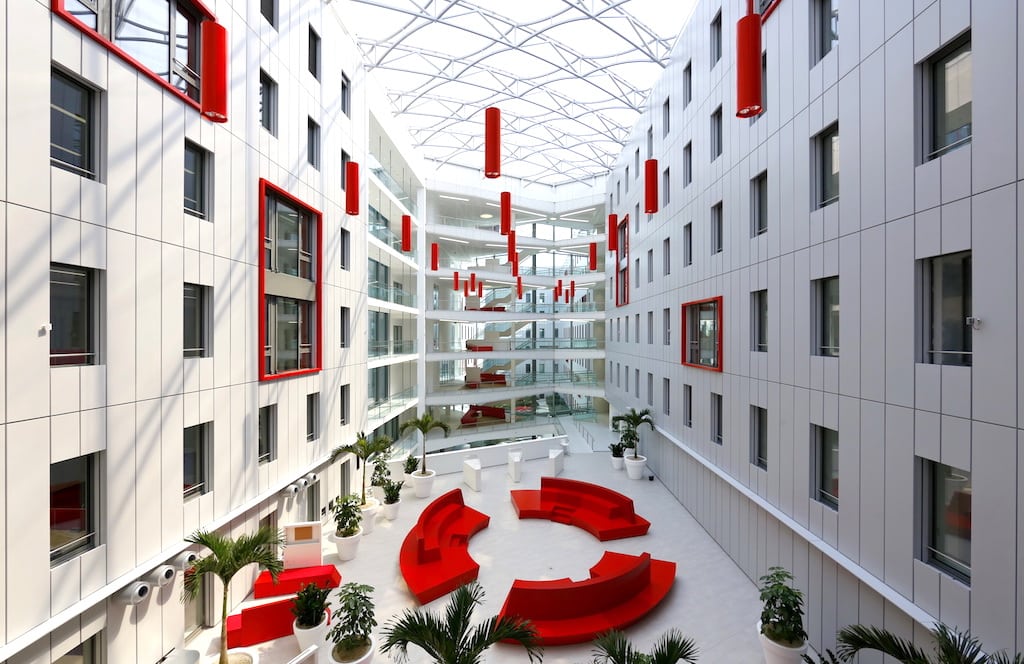The Airport City That Wants to Be the New Model for Meetings and Knowledge Sharing

Skift Take
In a world of increasing social and political polarization, airport cities become the new platforms for business discourse among mobile knowledge workers.
Frankfurt International Airport has been expanding over the last decade into a self-described "airport city" to meet growing passenger demand, expected to jump from 61 million people today to as high as 73 million by 2021.
The airport city concept is gaining traction in numerous large gateway destinations around the world from Dallas to Doha. However, the consensus today is that these airports cannot maintain competitive advantage by the size of their infrastructure and volume of connectivity alone, due to the continual buildup of so many airports in today's major markets.
That's according to the House of Logistics & Mobility (HOLM) at Frankfurt Airport. The think tank is attempting to help Europe's third busiest gateway also evolve — beyond just its infrastructure growth — into an advanced-industry knowledge cluster and high-tech business incubator.
The end goal is three-fold. One mandate is to drive more stopover traffic for business travelers and conference delegates into Frankfurt airport by providing a heightened value proposition relating to better networking and knowledge sharing opportunities. The second is to position the Frankfurt airport city as one of the world's leading knowledge hubs in the logistics and mobility industry. The third is to position the entire Frankfurt Rhine-Main metropolitan area as a leading business capital for people and businesses in motion in the on-demand economy.
"The city of the future is an international, interdisciplinary knowledge-sharing machine," Dr. Stefan Walter told me in 2011 when I first visited HOLM. Back then he was the managing director of the facility, but he has since moved on to consultancy work.
Dr. Walter explained that the global knowledge economy is grounded in the quality of so many different cities' transportation networks, most notably their airports. In Frankfurt’s case, however, he said the fast-growing U.A.E. carriers (Emirates and Etihad) have been encroaching on Frankfurt-based Lufthansa's dominance along many of its international
